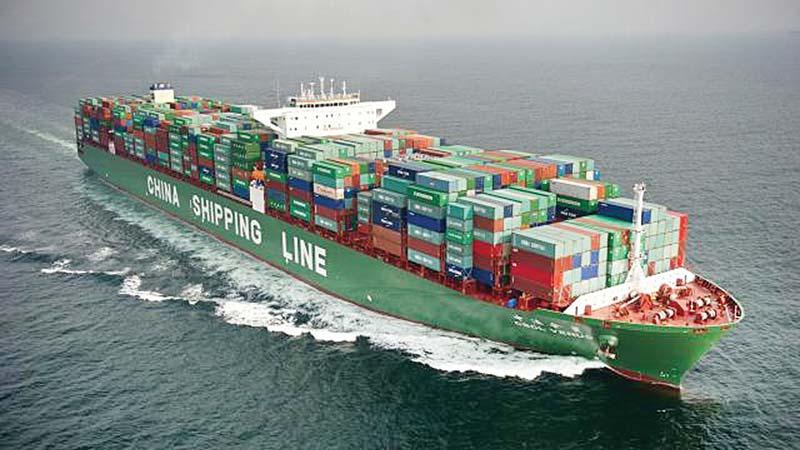Published in The Independent on Monday 2 March 2020
Imports from China resume slowly

Imports in Bangladesh have taken a big hit for the past one-and-a-half months following the coronavirus outbreak in China. Things, however, are slowly getting back on track with some shipments from China now bound for Bangladesh ports. Four weeks after the Chinese lunar new year holiday was originally supposed to get over, Chinese businesses are yet to pick up pace. The shipments from China mainly include products that they produced before the country was hit by the lethal virus.
Talking to The Independent, Anwar-ul-Islam Chowdhury Parvez, president of the Bangladesh Chambers of Industry, said: “It’s true that some provinces in China have resumed their business operations. We’re constantly keeping in touch with our Chinese counterparts. Some of the shipments were ordered before the Chinese new year holiday. They are now being sent to Bangladesh by ships.”
He also said even though the front offices of several Chinese factories and businesses had opened, the production units of most of the companies were yet to go into operation. “This is because many of the workers who had gone to their native villages to celebrate the new year holidays are yet to return to the city because of the quarantine in most of the cities,” he added.
A spokesperson from Bangladesh-China Chambers of Commerce and Industry (BCCCI) has said some ships full of goods were already bound for Bangladesh, staving off worries of businessmen.
On February 22, a ship, MCC Yangon, arrived at the Chattagram Port’s outer anchorage from the Shanghai Port with 1,500 containers. After going through the quarantine process, the ship had docked at the port. A few ships are also on their way to Bangladesh. More ships carrying raw materials for the readymade garments sector, fruits, ginger, and garlic are currently waiting at Shanghai and Ningbo ports in China.
The spokesperson also said as some factories had started their operations slowly, the monumental task of restarting the entire businesses was becoming clear in China. “China’s efforts to contain the virus are clashing with its push to get the country back to work, requiring the country’s leaders to strike a balance between keeping people safe and getting vital industries back on track,” he added.
A report published in New York Times said that with the end of the Chinese new year holiday period, China’s mighty manufacturing machine, which accounts for a quarter of the world’s manufacturing output, had shown glimmers of revving up again. With the exception of factories producing medical protective equipment, which the Chinese government has asked to run round-the-clock, some businesses are slowly picking up pace, it added.
The American Chamber of Commerce in Shanghai, which has members across much of the industrial heartland in east-central China, said the majority of its members had restarted at least some operations. But the bulk of these members are yet to go for full production, mainly for the lack of workers. Meanwhile, the coronavirus outbreak has shown dangerous signs of breaking out beyond China as new cases were reported from the Middle East, Europe, the US, and large clusters around Asia.
With the virus now spreading to at least 56 countries, companies are readjusting their annual profit expectations, economists are lowering their forecasts for global growth, and policymakers have signalled that they are ready, if needed, to act to stabilise the economy.
Talking with The Independent, Khondokar Golam Moazzem from Centre of Policy Dialogue (CPD) said the uncertainty over the coronavirus related situations had made it difficult for experts to predict the damage to the economy. “Some are even expecting a global recession,” he added.
The CPD economist said the Great Recession of 2008 and 2009 was largely a ‘demand shock’ as banks neared collapse, home prices plunged, and trillions of dollars in household wealth were wiped out.
“But the coronavirus threat is a supply shock—one that stems from a sudden slowdown in economic activity, as China, which accounts for a quarter of the world’s manufacturing output, struggles to get back to work,” he explained, adding that Bangladesh, as a growing economy, cannot insulate itself from this global shock.

